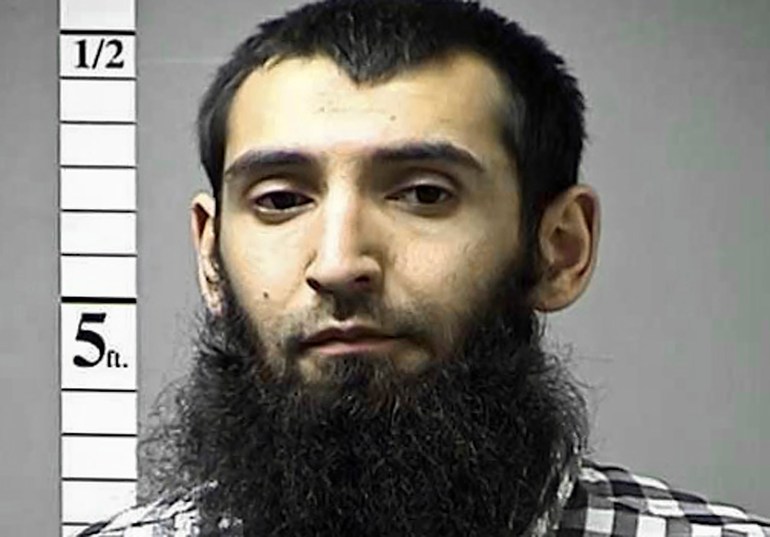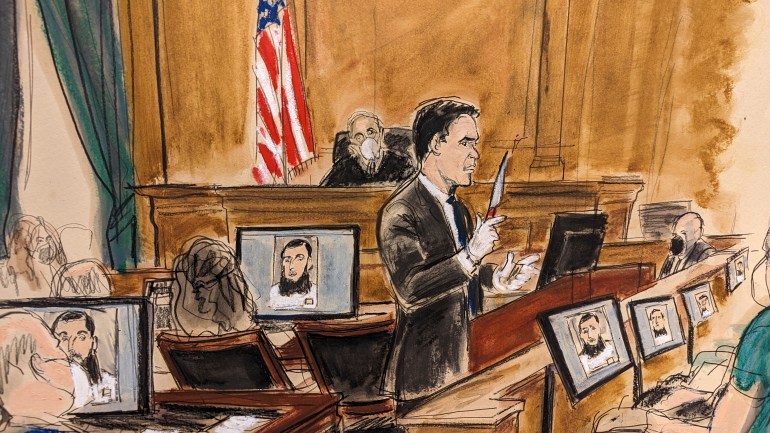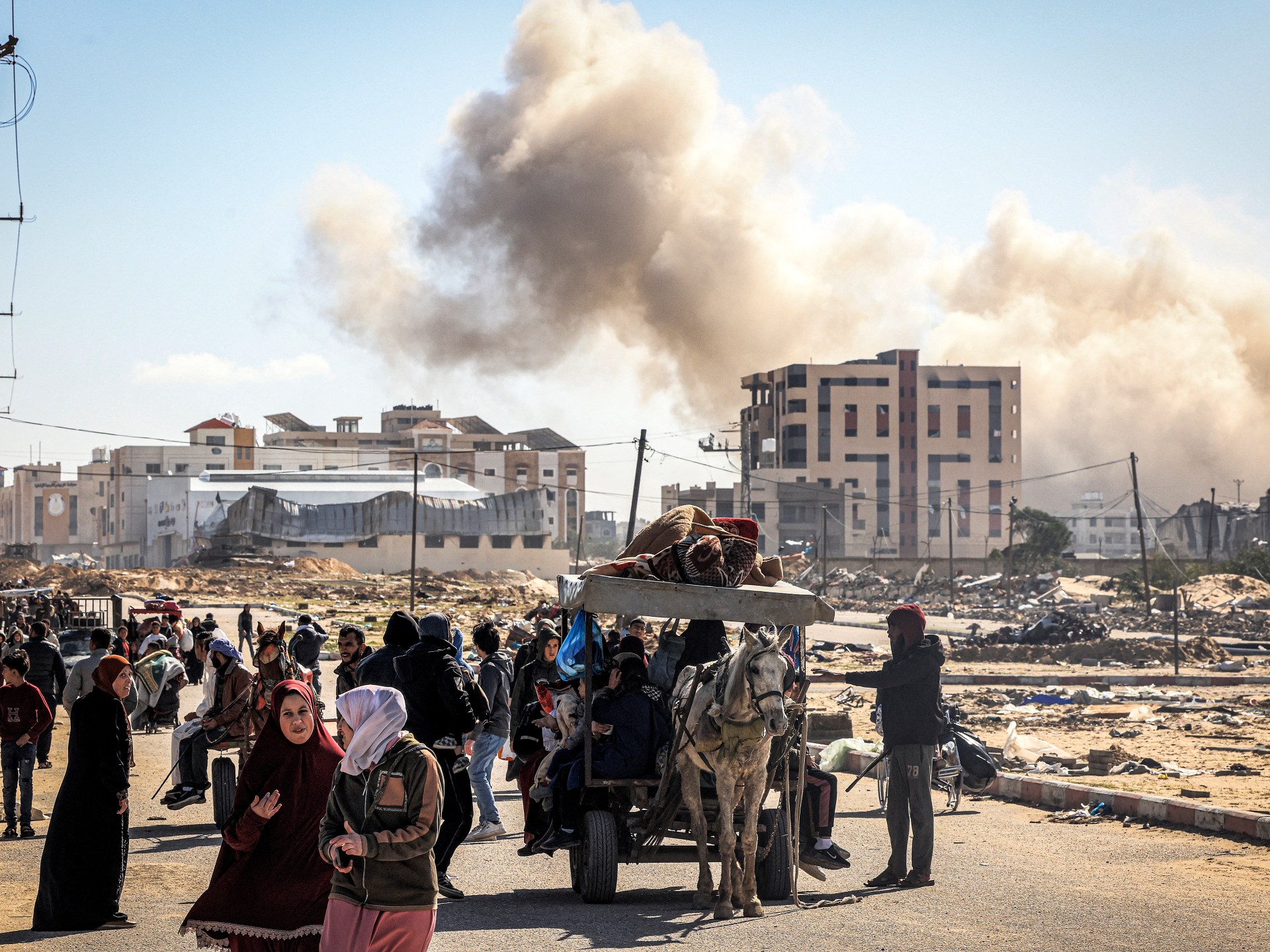New York City bike path attacker convicted for 2017 rampage
Sayfullo Saipov, who killed eight people after driving a truck down a busy New York City bike path, faces death penalty.
A man who rammed a speeding truck down a bike path in New York City in 2017 has been convicted for the attack that left eight people dead.
A Manhattan courtroom jury on Thursday convicted 34-year-old Sayfullo Saipov on all 28 federal counts he faced, including murder in aid of racketeering and supporting a foreign “terrorist” organisation.
He now faces the possibility of the death penalty, though that sentence is unlikely: The last time a defendant was executed on the recommendation of a New York federal jury was in 1954. And in 2021, United States President Joe Biden issued a moratorium on federal death sentences.
But the 2017 assault had drawn widespread condemnation, with officials calling it the deadliest attack in New York City since hijackers crashed aeroplanes into the World Trade Center on September 11, 2001.
At the time of Saipov’s attack, then-Attorney General Jeff Sessions called his actions a “calculated act of terrorism in the heart of one of our great cities”.
Saipov’s lawyers conceded to the jury he had rented a pick-up truck near his New Jersey home, steered it onto the bike path along the Hudson River and mowed down bicyclists for blocks before crashing into a school bus near the World Trade Center on October 31, 2017.
Saipov, who is an Uzbek citizen and moved to the US in 2010, exited the vehicle, yelling “God is great” in Arabic and brandishing pellet and paintball guns. Police then shot Saipov in the abdomen, reportedly believing his guns to be real firearms.
Prosecutors described the attack as an effort to impress ISIL (ISIS), the violent extremist group that had seized large swathes of territory in Syria and Iraq.
The New York City assault left more than a dozen injured and eight dead, including two Americans, five friends from Argentina and a woman visiting from Belgium.
The federal jury heard nearly two weeks of evidence in the case, including testimony from some of the victims who sustained life-altering injuries.
A Belgian couple, Aristide Melissas and Marion Van Reeth, took the witness stand to describe how their family outing was violently interrupted by the attack. Melissas had to undergo brain surgery after his skull was cracked and Van Reeth woke up in a hospital to find that her legs had been amputated.

Prosecutors also sought to tie Saipov’s actions to his interest in ISIL, presenting evidence collected from his electronic devices and home.
Assistant US Attorney Jason Richman used his closing argument to explain what he described as Saipov’s joyful mood after the attack.
“He smiled. He was proud. He was happy with what he had done that day,” Richman said. He also noted that Saipov had requested an ISIL flag to hang in his Manhattan hospital room.
But while Saipov’s defence team did not deny his role in the attack, it attempted to convince the jury he should be acquitted of some of the charges. The lawyers also questioned the prosecution’s assertion that Saipov had committed the attack in an attempt to join or impress ISIL.
“His actions were senseless, horrific and there’s no justification for them,” defence lawyer David Patton said during the trial.
But Patton said Saipov “did not expect to be here before all of you and did not expect to be joining any organisation”.
Patton also maintained that his client expected “that he would die by police shooting” and therefore could not be guilty of the racketeering charges. Saipov had previously pleaded not guilty.

The jury took seven hours, over the course of two days, to deliver its verdict, interrupting its deliberations to ask the judge questions about the types of crimes Saipov was charged with and whether he could be retried if he had not committed the crimes with the intent to join ISIL.
The Associated Press news agency noted that Saipov appeared quiet when the guilty verdict was read out on Thursday, a departure from his outspoken behaviour early in the proceedings.
In 2019, he questioned a judge at a pre-trial hearing for passing judgement on him when “thousands and thousands of Muslims are dying all over the world”.
The same jury will consider whether to give Saipov the death penalty in the coming days.




